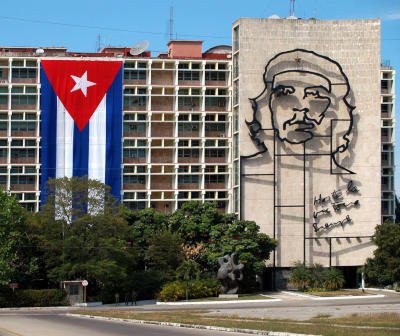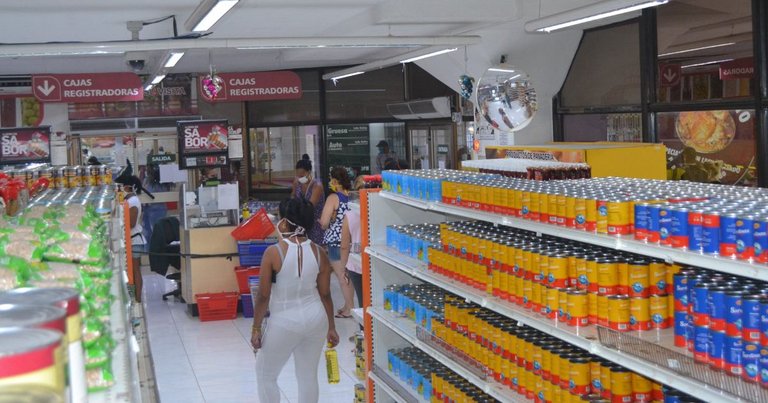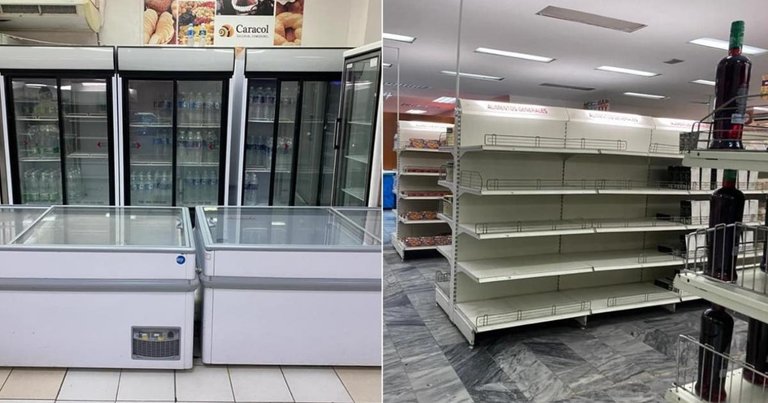
After speaking with some in the different communities, they have asked me what it is like to live in Cuba, its landscapes, its economy, its people and even, how true its system is and if it is real that a dictatorship exists.
Today, my trip begins, where I will explain to all my readers about Cuba, an island that for many is abandoned by God, and for others it is a paradise. This being an almost impossible dilemma to solve.
In this Blog we will talk about reality, something that very few say and if they do it is because they are out of the country, so some invent, and others perhaps not so much.
I want to invite you all to follow me, giving me your support for the continuity of this great project that I am beginning, and who knows, maybe it will reach the ears of someone who can not so much solve our problems, but be well aware of what good, bad and regular of the ISLA del Tropico.
Let's start...
How much does it cost to live in Cuba?
Good question huh? Well, let's go to reality and not be guided only by google sites, that as I said, 95% of these creators do not live here, so they really do not know even 1/4 of what they are talking about.
Cuba is one of the favorite countries for pensioners (that is, foreigners) to start a new life. This is due —among other reasons— to the low prices of products and services that the country can offer you. If you want to come, in this post you will know what exactly is the cost of living in Cuba, for people from other countries. Yes, I clarify because many may confuse what I mean.
Before continuing, I will give you an important fact...
In Cuba there are not 2, nor 3 social classes, here there are thousands of social classes and only one predominates in the country, which I will tell you about later.
Working Class: It is the type of person who works for the government, who has his job for 8 hours a day, which would be 224 hours a month, if because here you work from Monday to Saturday.
For this working class, his average salary is 2,300 Cuban pesos (CUP), so if we divide this by the hours worked, it gives us 10.20 (CUP) per hour.
Yes, I know that many will think that he is a fortune, but do not hurry and continue reading.
Black Market:
As in all the countries of the world, Cuba also has a black market, where you can buy all kinds of products, but today we are going to refer to the MLC, (Freely Convertible Currency) which is what you are allowed to buy in the stores that have all kinds of products.
Exchange MLC against CUP:
I will explain something to you before putting these rates so that you understand.
You can buy these coins only with CUP, or if you are lucky, someone sends you money from another country, so you can survive.
Dollar (1 dollar is equivalent to 100 CUP)
Euro (1 euro is equivalent to 115 CUP)
Sterling Pound (1 Pound equals 130 CUP)
MLC per transfer (1 MLC equals 125 CUP)
The dollar is something that cannot be trafficked in the country, since the United States Government has Cuba blocked and this is equivalent to not allowing its deposit or transfer in Cuban banks.
For the most part, everyone uses the dollar to be able to leave the country, and not to trade here.
Stores in MLC:

Already explained the economic system, let's continue with the stores in MLC.
In these stores there is everything, from water, to tasty meats, which 80% of the population cannot buy, since as you know, prices vary and I will give you a simple real example. Chicken, which is something that is sold the most here and 1 package of this product costs 4.35 MLC and if we take it to change in CUP, this would be about 543.75 Cuban pesos, so it would be almost 1/4 of what a Cuban.
Now, there are normal stores, where normal Cubans like me can go and buy our products.
Stores in CUP:

These stores in other times, you could buy not many products, since in Cuba there have always been shortages, but you could buy something. But now, let's say that in the stores, not even water there, since the products are every 45 days and by the supply book and Identity Card, so if you buy the 2 packages of chicken that you get for the book in May , you can't buy more until the middle of June or the end, who knows.
In other writings I will continue to explain more about the system, this is only the beginning of my blog and I am only introducing myself.
Now let's talk about more "Disadvantages of living in Cuba"
Cuba is not a safe country. There are many robberies and theft of objects. This is due to the need that exists on the part of many people. Do not neglect your personal belongings at any time (mobile, bag, wallet, etc.), since at any time you can be the victim of a robbery. It must also be said that intimidations or armed robberies are not very common, and not because of the number of police officers on the streets, if not for the fact that in Cuba there are not as many firearms as in other countries. But there are robberies with a knife, murders, and a thousand other things, so it is extremely safe to always go out with someone who is from here (a guide).
Another drawback of emigrating to Cuba from this country is that there is no freedom of expression. The country's main media outlets are controlled by the government and even internet access is limited. The people only have the option of knowing what the high officials want. Anyone who has a different opinion than what the Government says will have to be careful, since prison sentences are the order of the day in Cuba.
So to finish today's writing, I'm just going to ask you to support me, this would help me a lot financially and to be honest, I'm looking to leave this country.
If we manage to grow in followers, I will start my own youtube channel where I will take you on a tour of the ISLAND.
Thank you all so much, I love you.
This type of economies are a clear example of the negative impact of the interference that some powerful states execute with more economically fragile states, this breaks any understanding with the international community, since while some observe how a country collapses others, the people are the most affected.
Hello @kluis1990! This is @chillwithshanna from @ocd (Original Content Decentralized) team. Congratulations for making your first post on hive and we welcome you to this awesome community!
Here at Hive we would love to get to know new users well. So the best way to start is to do an introduction post. You can choose whatever information you would like to share about yourself, be creative! Add pictures and also you might want to share how you discovered hive. If someone introduced you to hive, tag them in your introduction post to thank them. This will help other Hivers get to know you and be comfortable supporting your works here.
We have a lot of Communities you can subscribe to which are all categorized based on interest or topics. Share your blogs there to have a wider range of audience or you can check out the Communities Incubation Program.
Since content on the Hive platform is monetized, using other people’s ideas or images could be considered as an offense and which is also viewed in a serious light on the blockchain. Here is a useful collection of resources about how plagiarism and abuse is viewed and handled on Hive.
If you are looking for tips and information as a Hive newbie, click here: Newbie guide. If you have questions, you can hop into Discord server and we'll gladly answer your questions. Feel free to tag @lovesniper @chillwithshanna once you have made your awesome introduction post!
Happy Blogging!